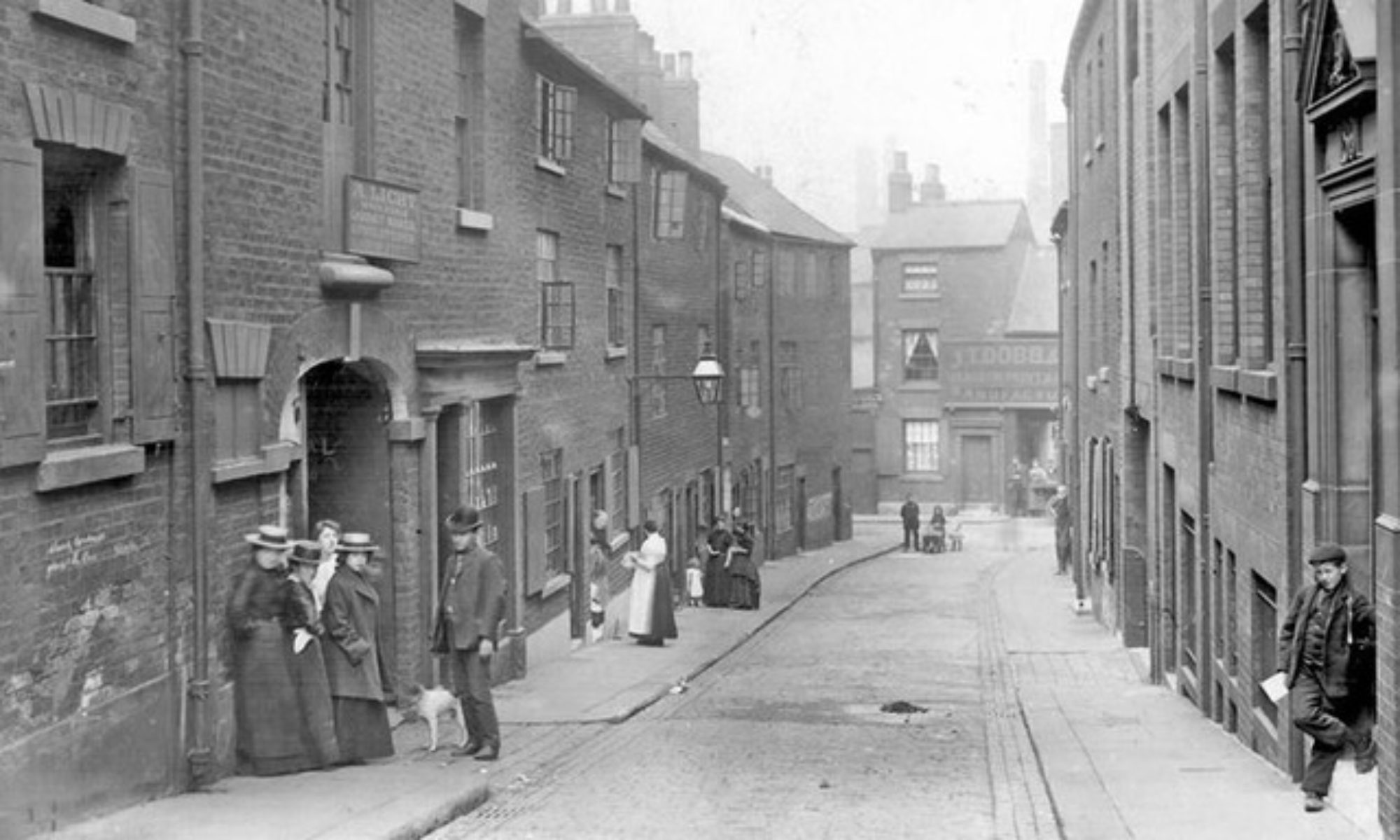PORT CREDIT FISHING DERBY
JUNE 24, 2018
alan skeoch
June 24, 2018
(Excuse the mention of Skeoch family in story…too many of
them, I know that…including dog Woody. There are people
here whose names I could not record…particularly the two
young boys who caught the big fish.)
The best fishing in Ontario is not located in some pristine lake hidden away in the dense coniferous forests of Ontario. Nope! Not there! The best
fishing is just a couple of kilometres out from Port Credit in Lake Ontario. Deep down, 200 feet or more, there is a large school of salmon feasting on
alewives and others. Salmon that grow to be huge. Salmon that a few fishermen compete each year to see who can catch the biggest of these
predators.
The rebirth of the Credit River did not occur overnight. For decades the River went into a sad decline until the Atlantic salmon disappeared from the river
as the twin damages of timbering and damming in the 19th and 20th centuries removed the shade of overhanging trees which provided cool water that
salmon loved to lay their eggs and the dams for power mills … lumber, grist, wool …slowed the river down so much that the white water rushes were
eliminated and the river became a lazy watercourse unappealing to the adventurous Atlantic salmon. The dumping of sewage and sawdust into the
Credit River did not help much either. Brian Lambie, President of the Port Credit Salmon and Trout Association put the matter bluntly. “People of Ontario tended to think of rivers
as a place where sewers go.”
But all that has changed. The Credit River has been reborn helped by many midwives some of whom planted 400,000 trees along the banks of the river as it winds its way down
to Port Credit from its headwaters near Erin and Orangeville. Tress shade salmon eggs.
Even now, Brian Lambie, the president of the Port Credit Salmon and Trout Association, said most people in Toronto don’t even know you can catch big salmon in Lake Ontario. “They tend to think of Lake Ontario as a place where our sewers go,” he said.
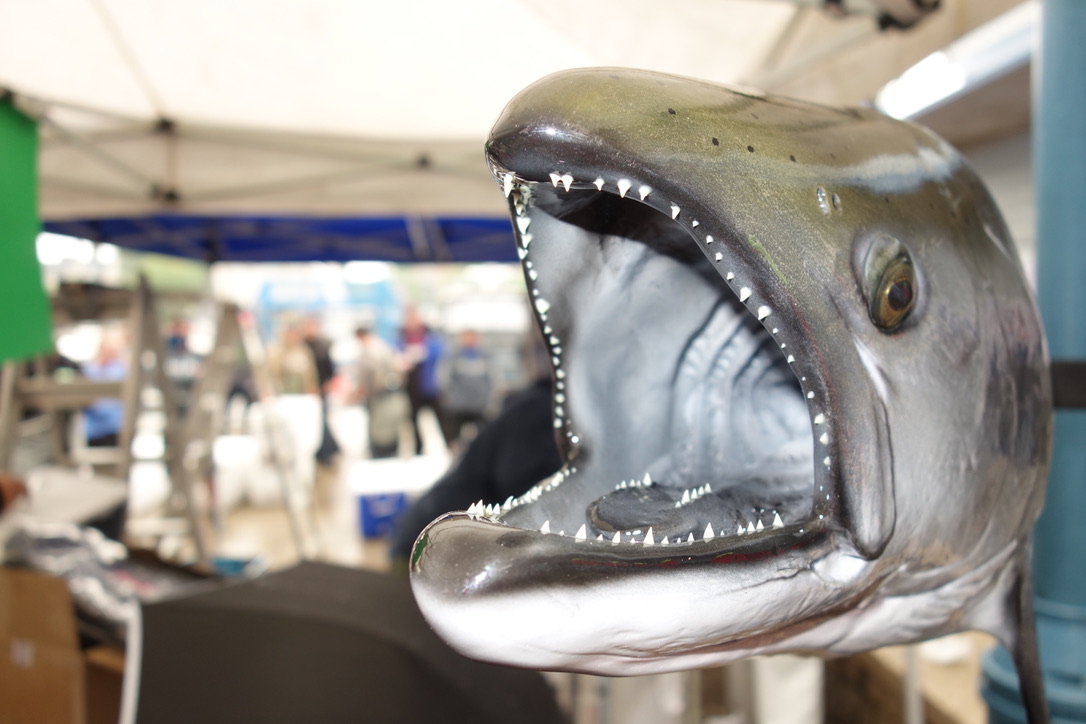
But there were no Atlantic Salmon in the Credit River. And the comeback of those beauties was unlikely. In the 1970’s enlightened conservationists (including
many fishermen) came up with a solution. “Let’s try Pacific salmon, they are tougher.” And so chinook and coho salmon were ‘seeded” in the upper Credit
River. They loved the new home it seems. 800,000 salmon eggs were introduced and 90,000 Pacific salmon fingerlings began to run the new rapids down the
Credit to Lake Ontario. Today, 2018, the Pacific salmon are established as between 5,000 and 10,000 return to run up the river every fall to get back to what they
thought (first run) was their place of birth. Nowadays the headwaters of the Credit … there river is some 100 km long…has become their place of birth. They
are the Credit River salmon, no longer Pacific Salmon.
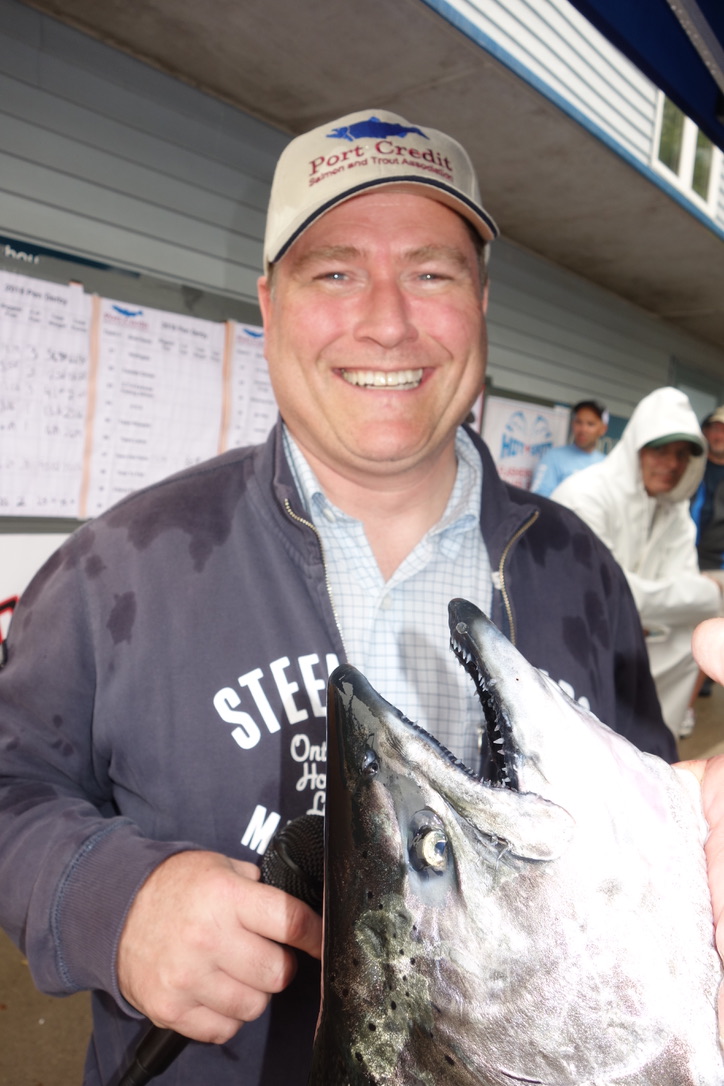
Brian Lambie’s leadership with fishermen has helped to make the Credit River into a $180 million industry where huge salmon like the one pictured here (caught June 25,2018) are
common enough to support a Port Credit Fish Derby where fishermen and a few fisherwomen haul their caches to a weigh station on the banks of the river and the top catch
gets a $2,000 cash prize. This year the top catch weighed 22 pounds and is pictured just below the smiling face of Brian Lambie who acted as spokesman for the Salmon Derby.
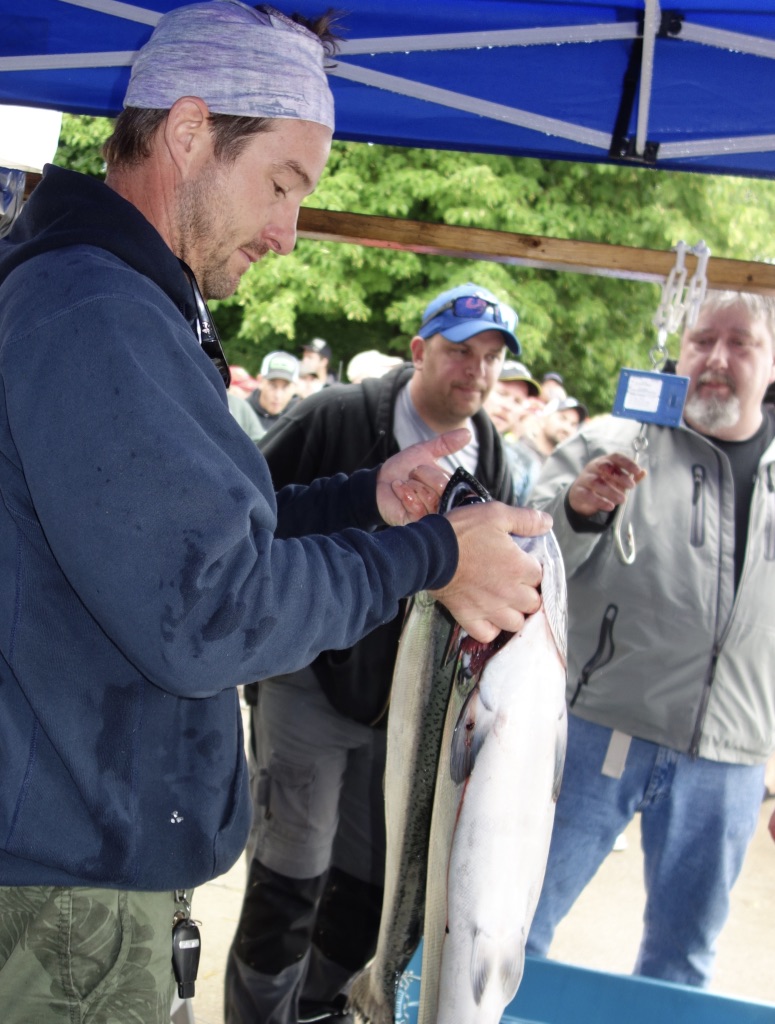
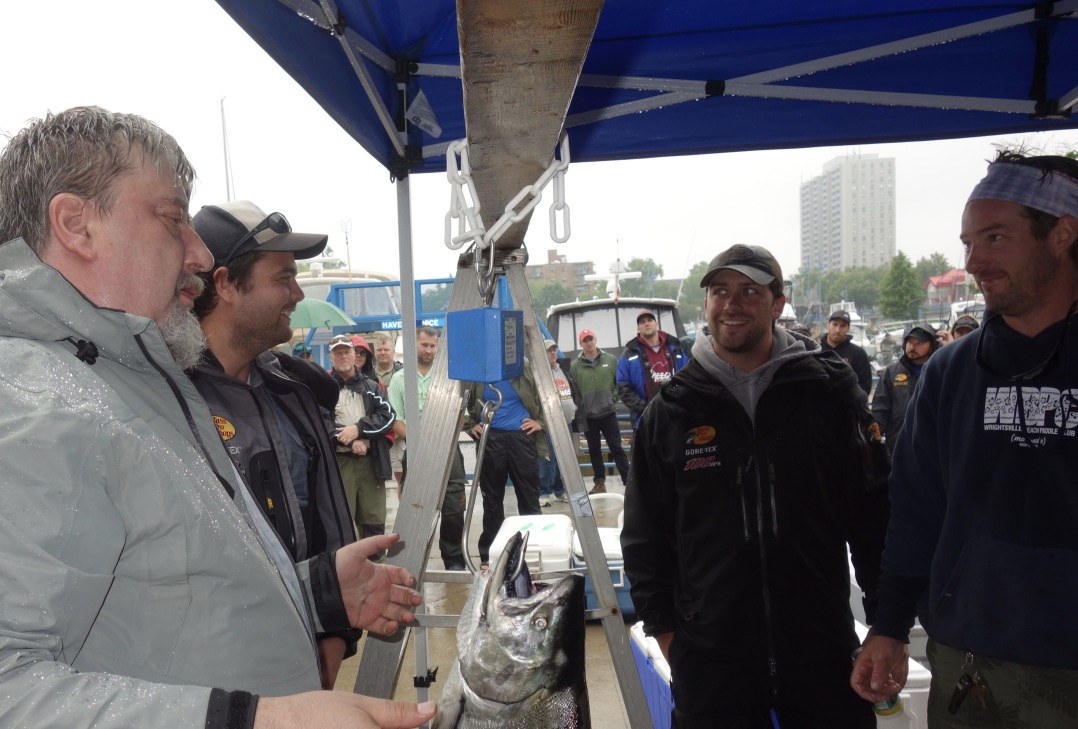
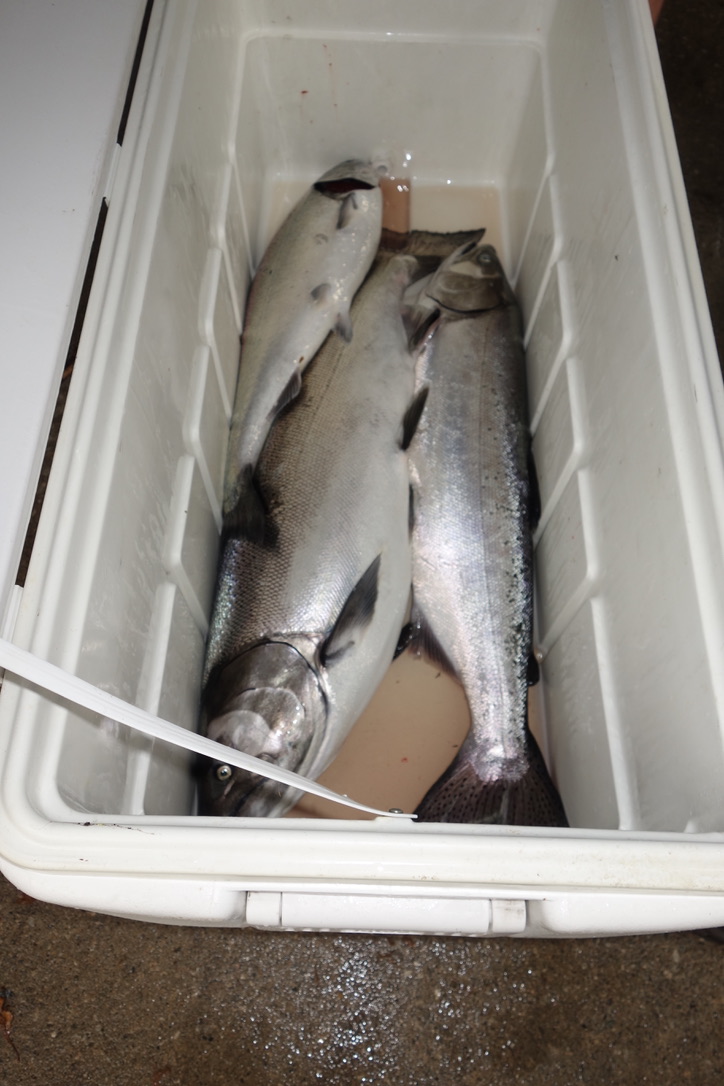
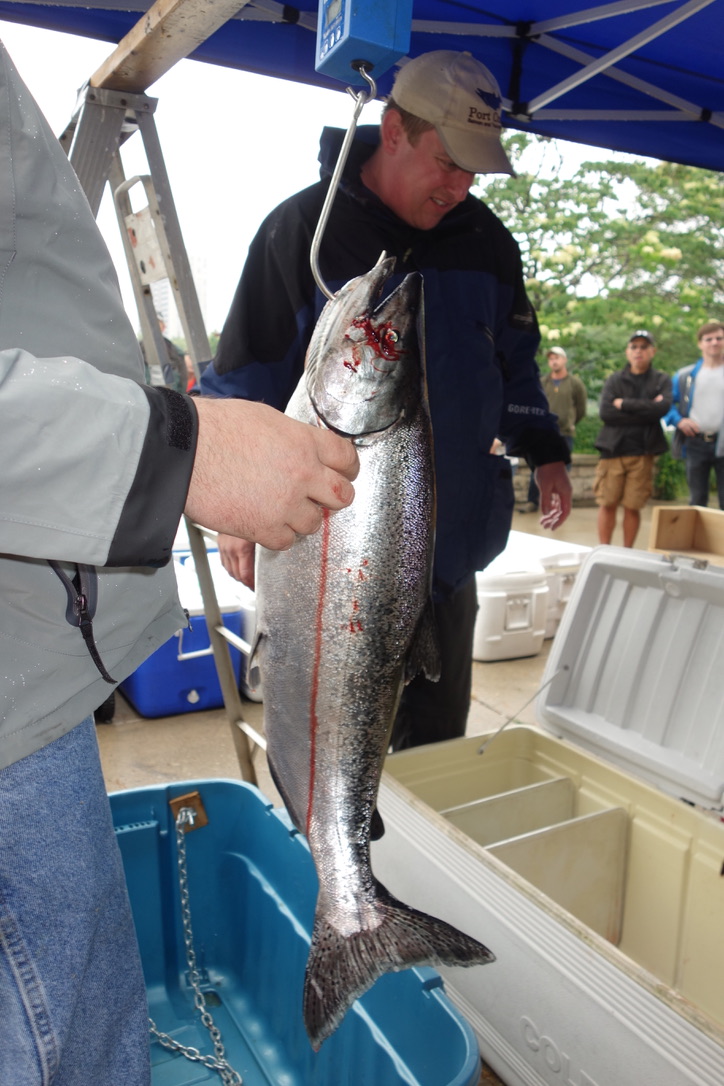
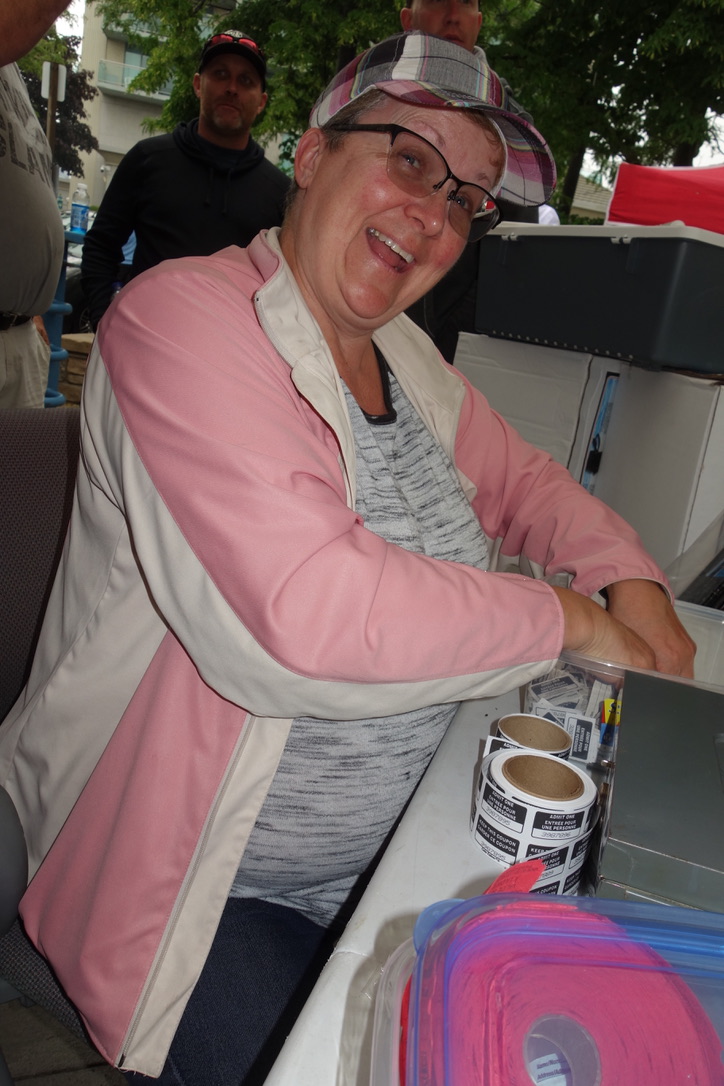
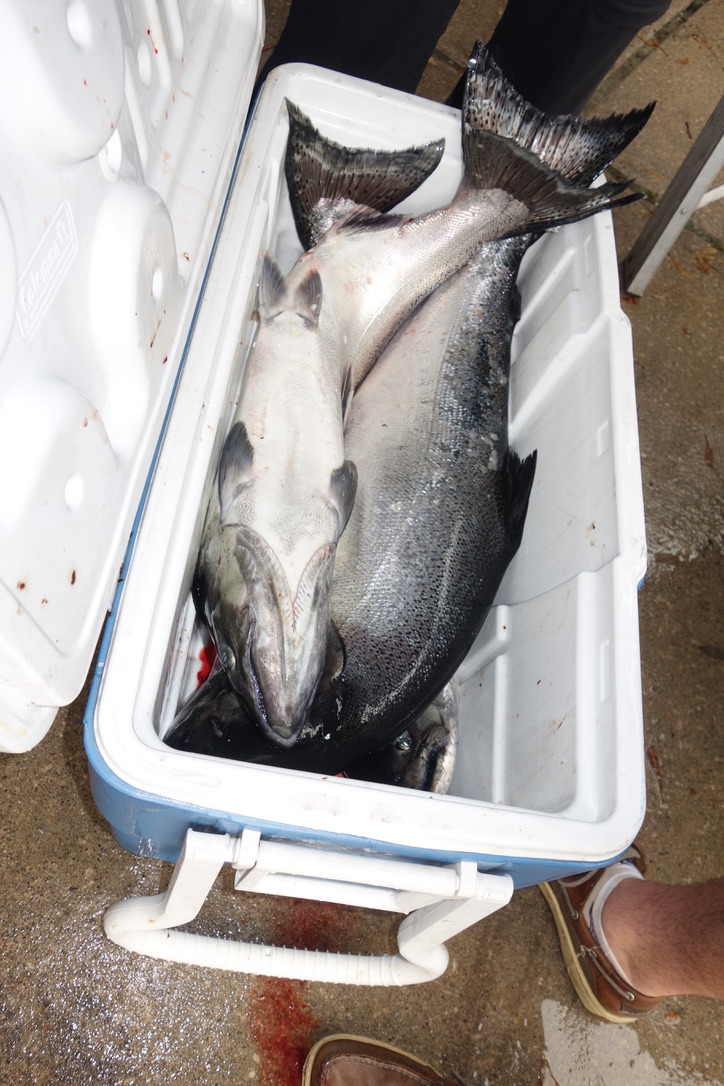
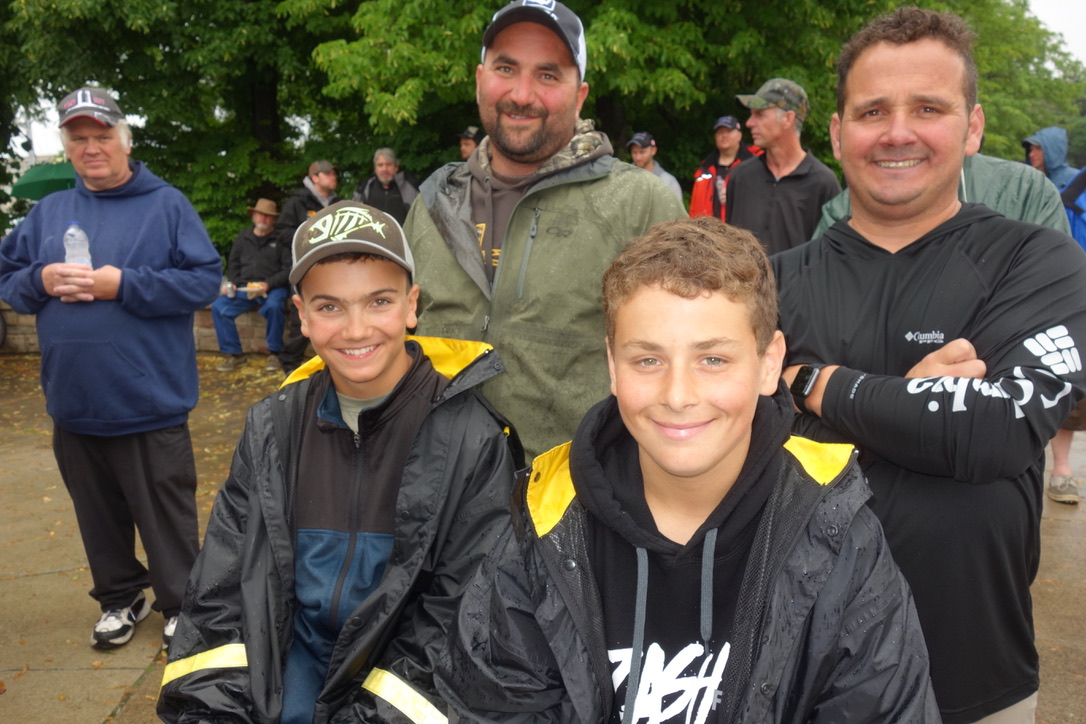
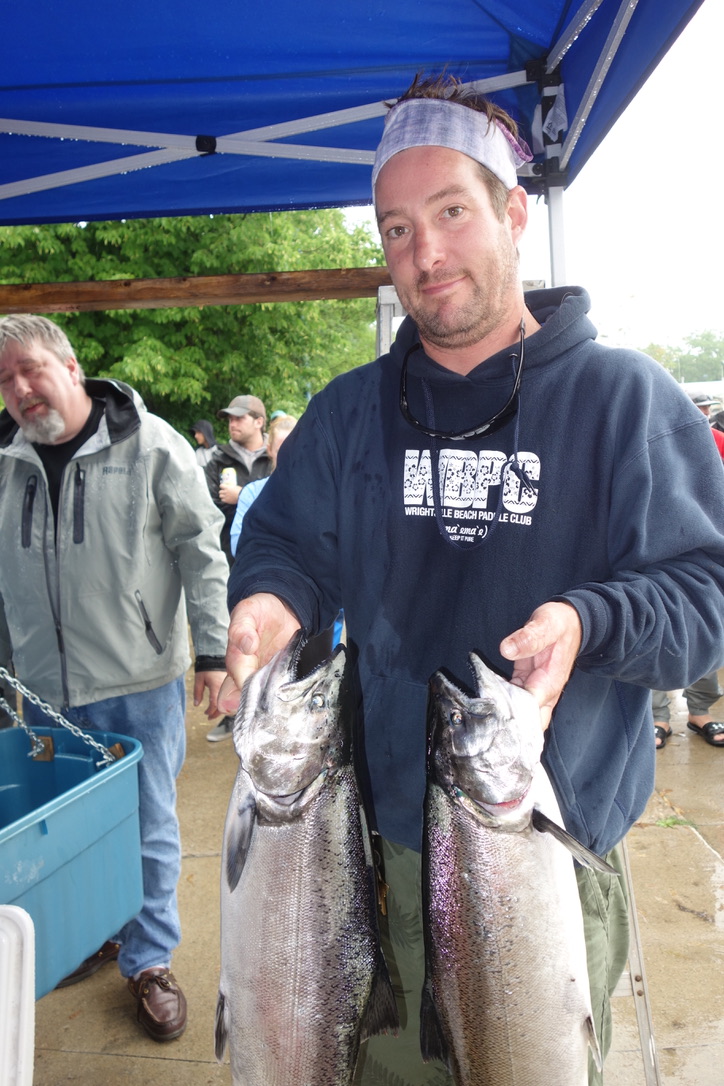
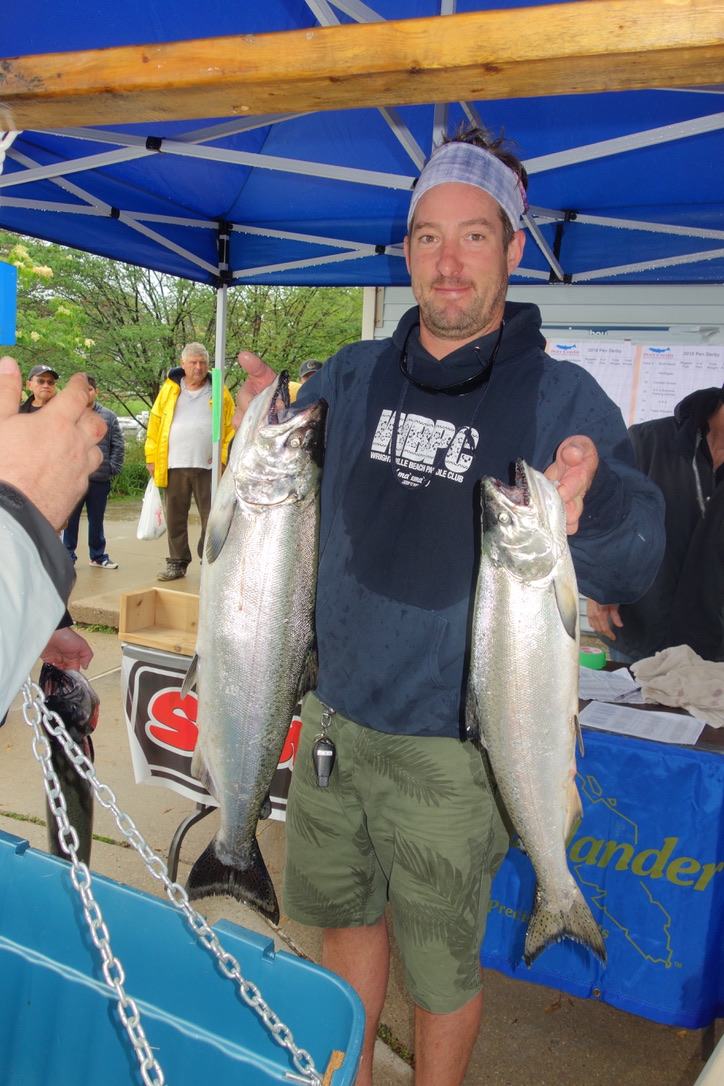
Andrew Skeoch supervised the weighing competition. Competing fishermen who caught more than one big salmon had to choose which of their catch
would be weighing in. Of these which would you select?
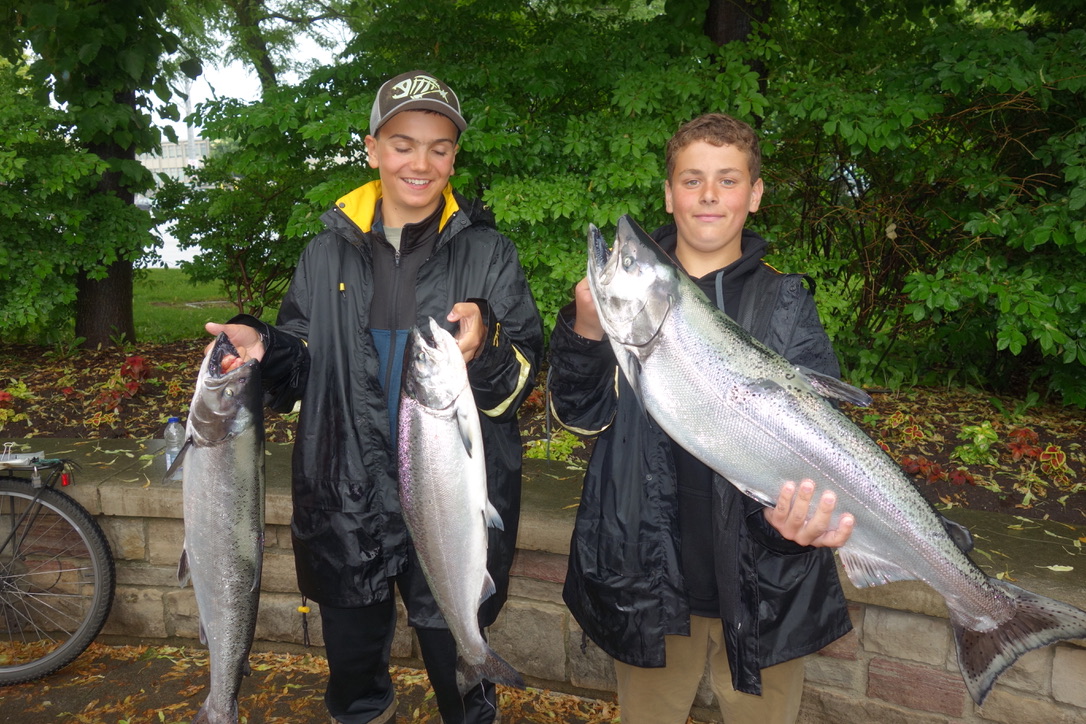
These boys were professional s at catching salmon. The huge fish on the right was a top contender that just barely missed qualifying for
one of the big cash prizes.
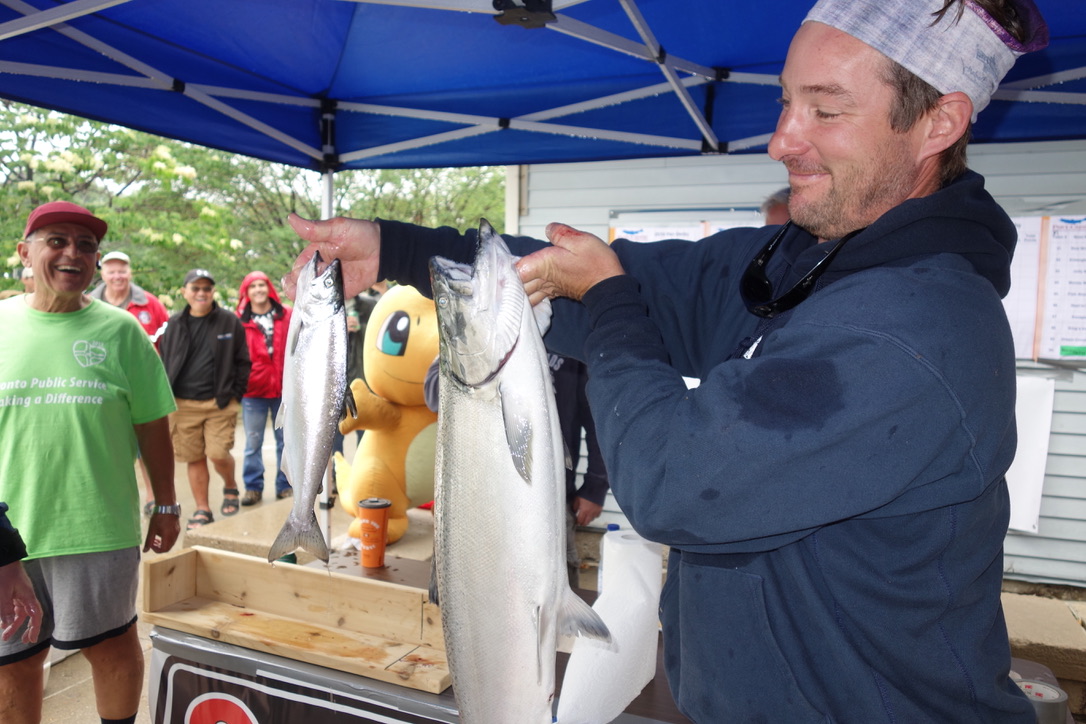
Some caught big ones. some caught little ones. One boat caught that big orange stuffed toy floating in the morning mist.
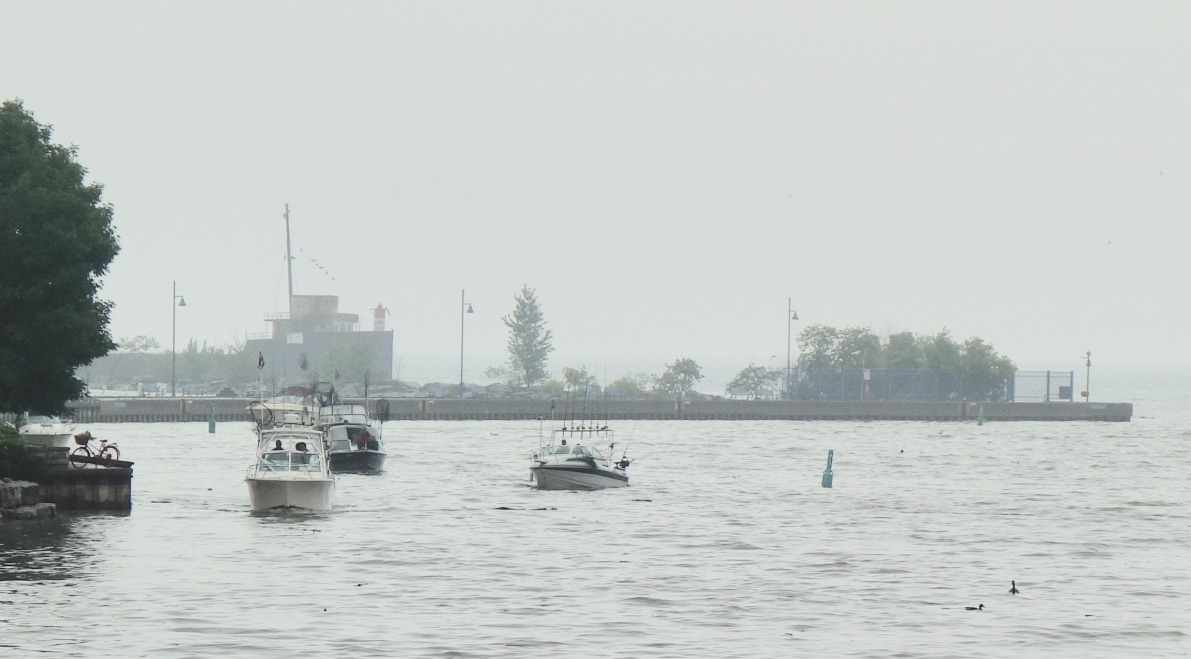
Some of The Port Credit Fish Derby contestants are returning to the Port Credit harbour with huge fish in their lockers. Some returned with nothing. In the distance
is the hulk of the old Ridgetown, a Laker that was filled with cement year ago to act as a breakwater at the mouth of the Credit River.
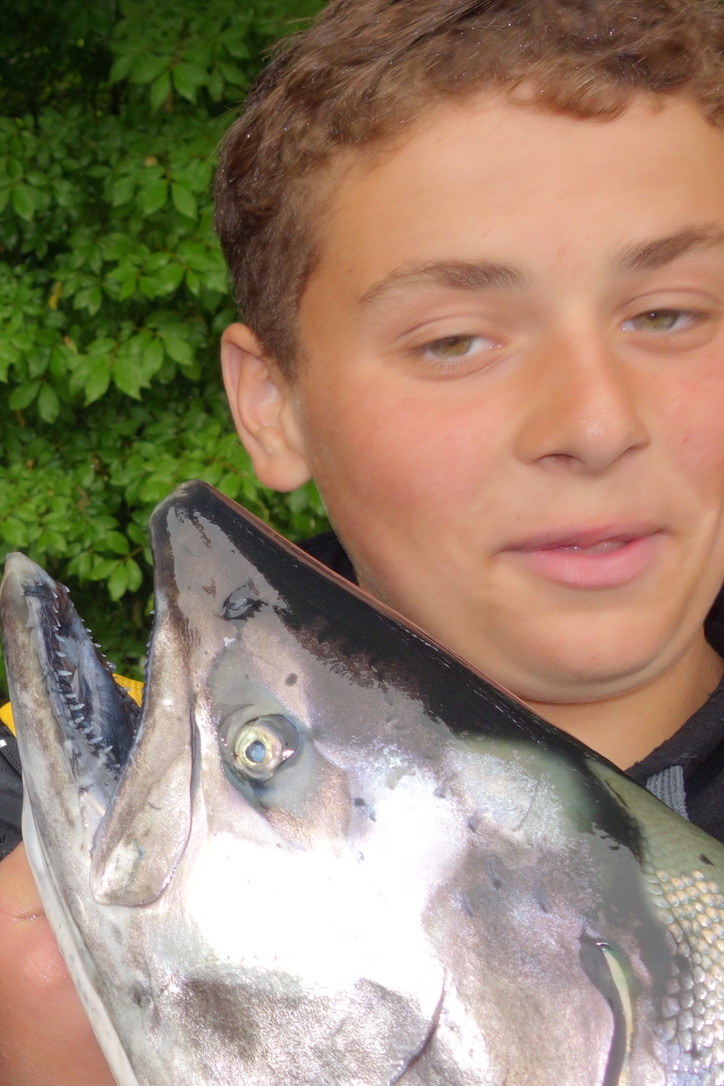
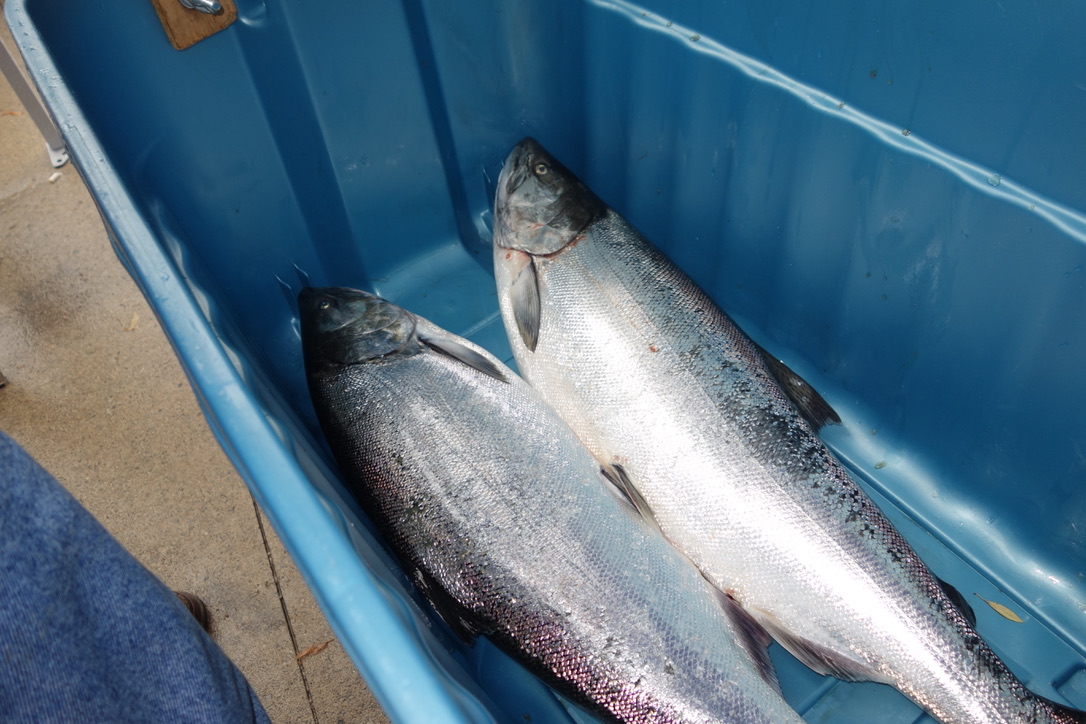
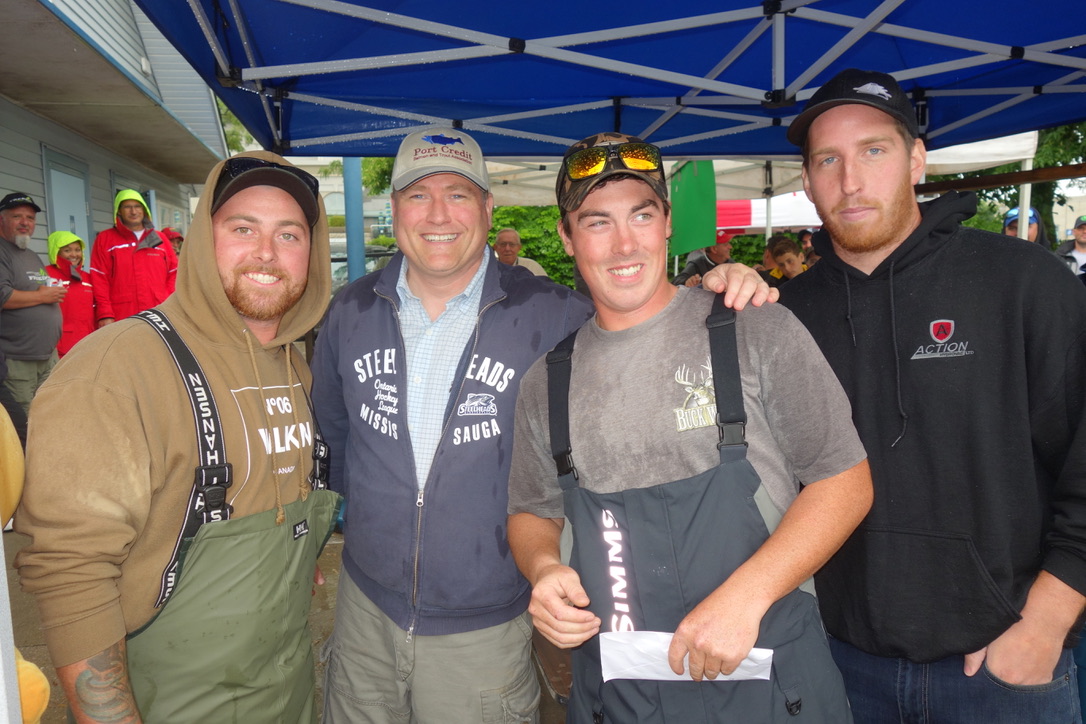
The winning team brought in a 22 pound salmon. Here they are pictured with Brian Lambie.
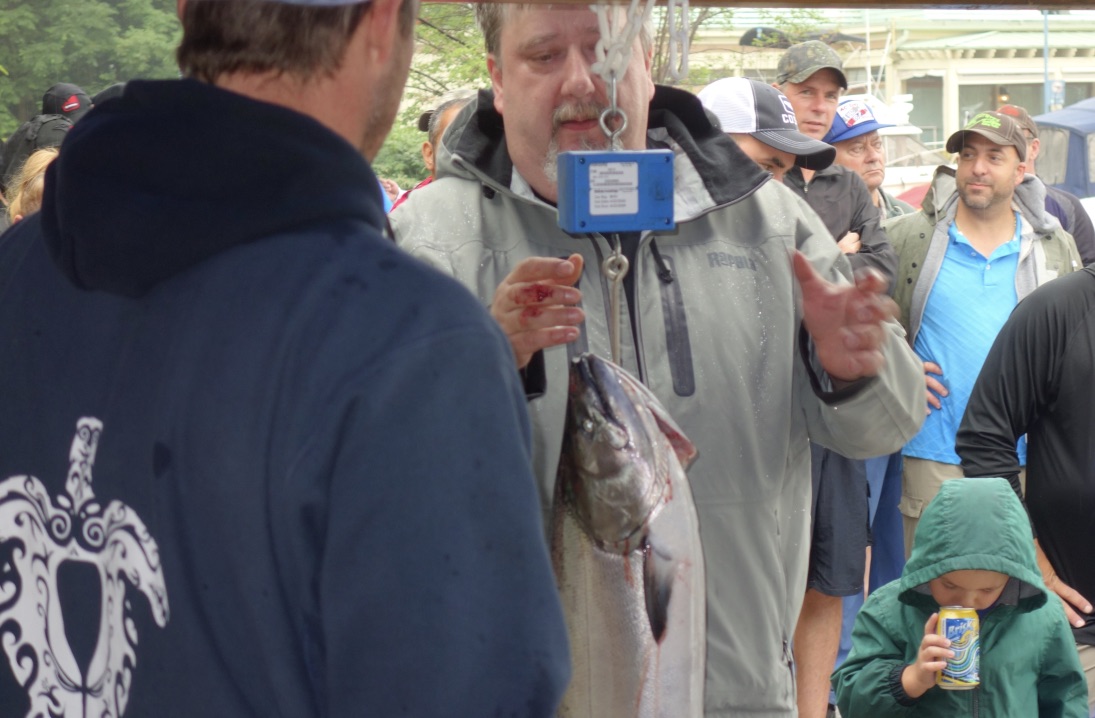
One man whose name I need to find, had the job of determining the biggest fish. His word was not up for debate.
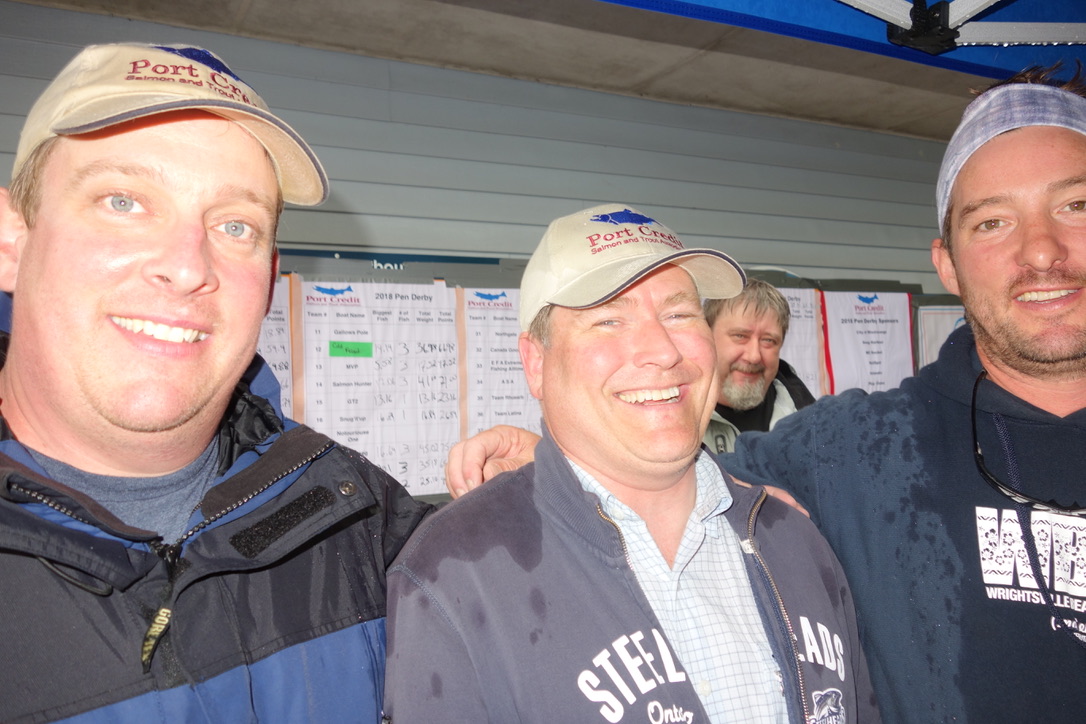
Brian Lambie, centre, with two of his many assistants. These assistants had to slip their fingers through the gills of these huge fish, careful not
to slice fingers on the serrated teeth of the salmon. Remember salmon are predators … helped to clean
up the Credit River by gobbling up as many of the alewife fish as they could find. The alewife replaced the Atlantic salmon
and had to be reduced if a salmon stock could be re-established. Take a look at the teeth on the salmon held by
Andrew Skeoch on the right below.
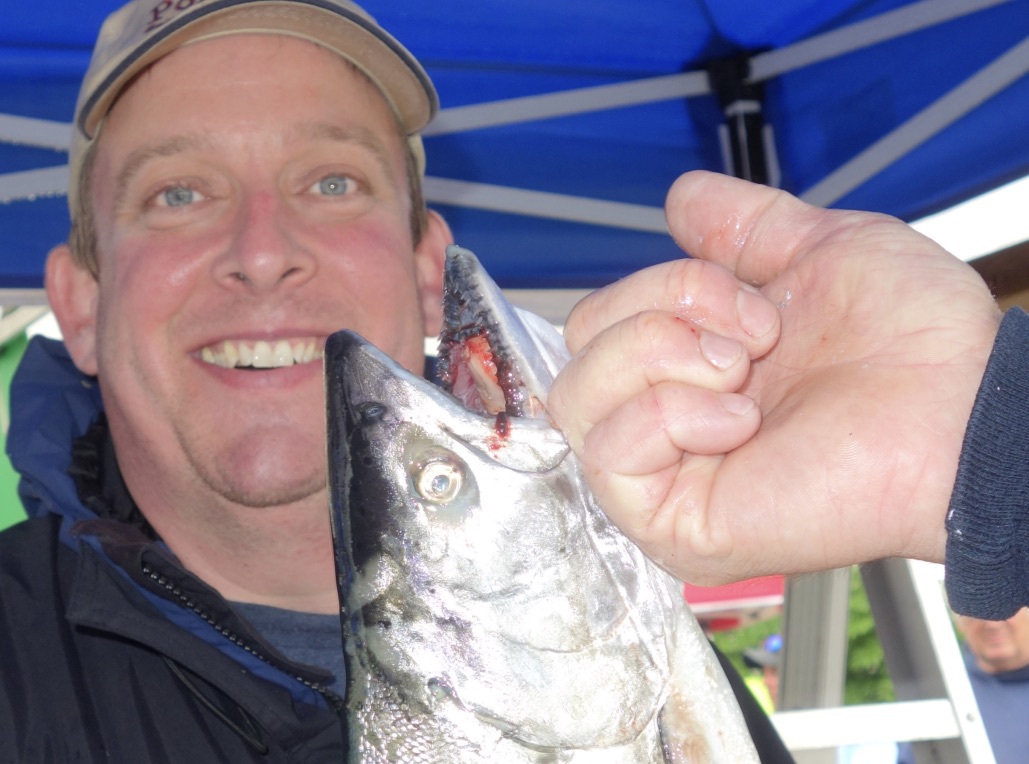
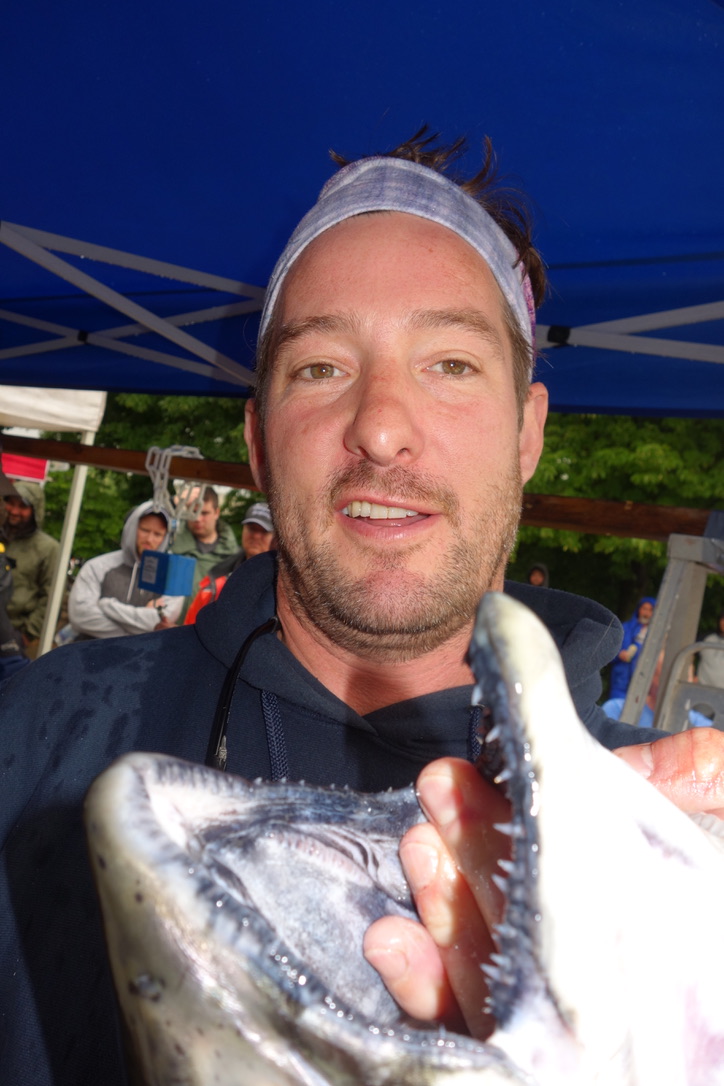
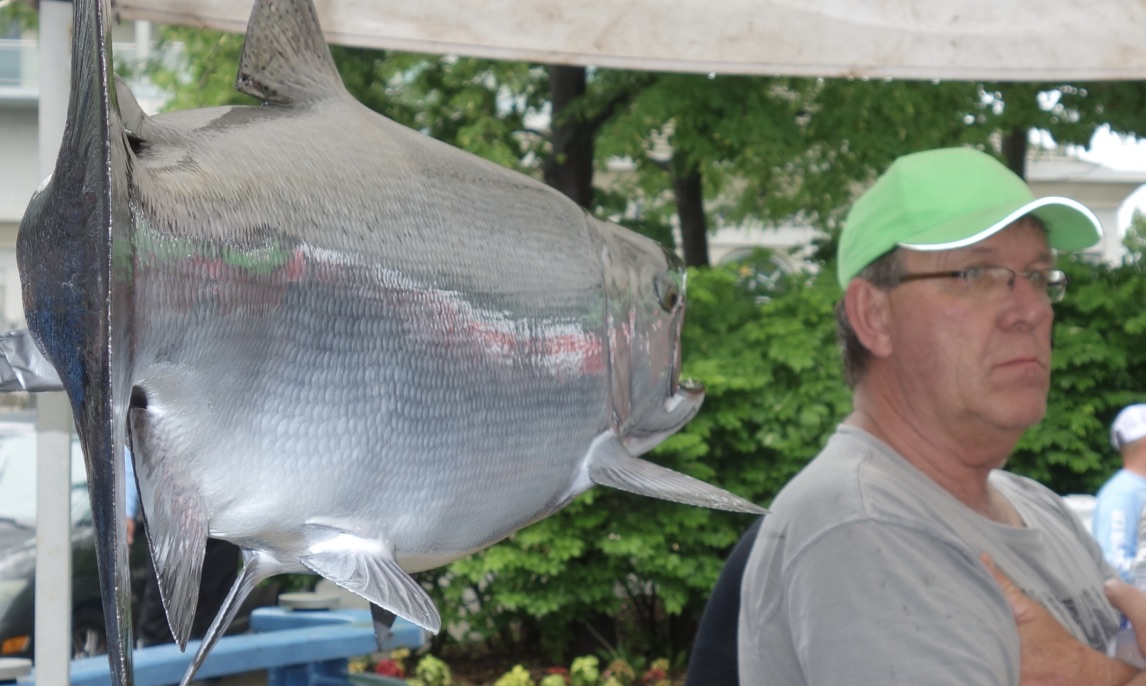
This salmon is preparing to get even with this fisherman on the right. Salmon and fishermen should be friends but they are not. The salmon
compete to catch and consume smaller fish. The fishermen are after the prize money in the Port Credit Derby. Enemies.
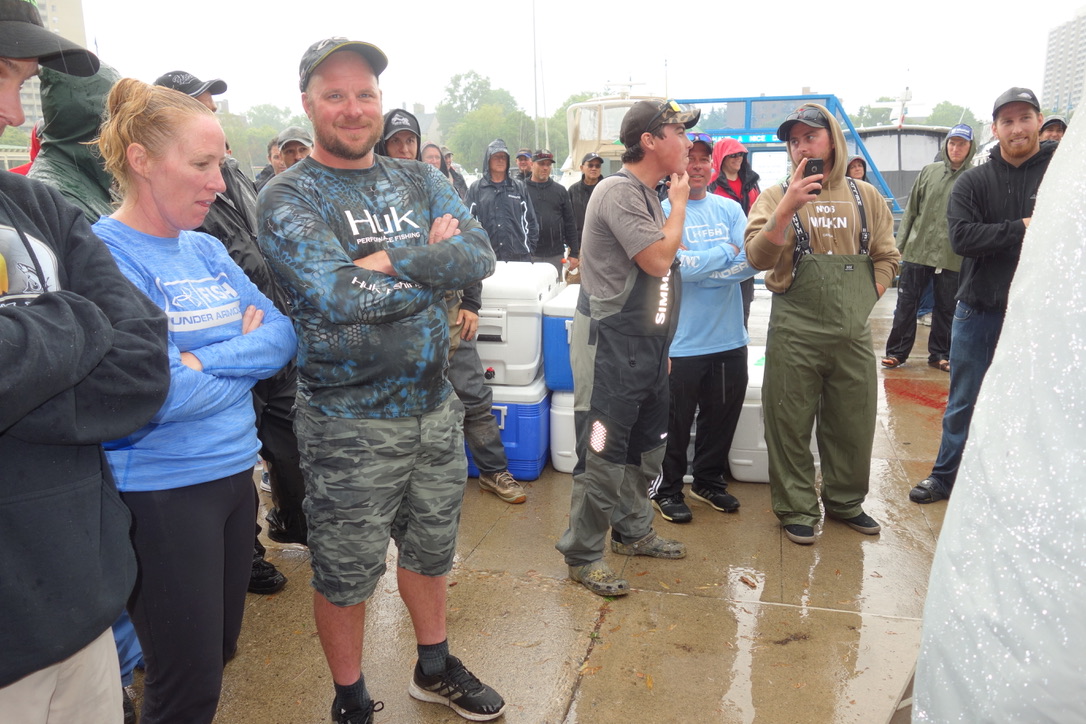
I counted three women among the fishers. It was a male crowd of 60 to 70 men.
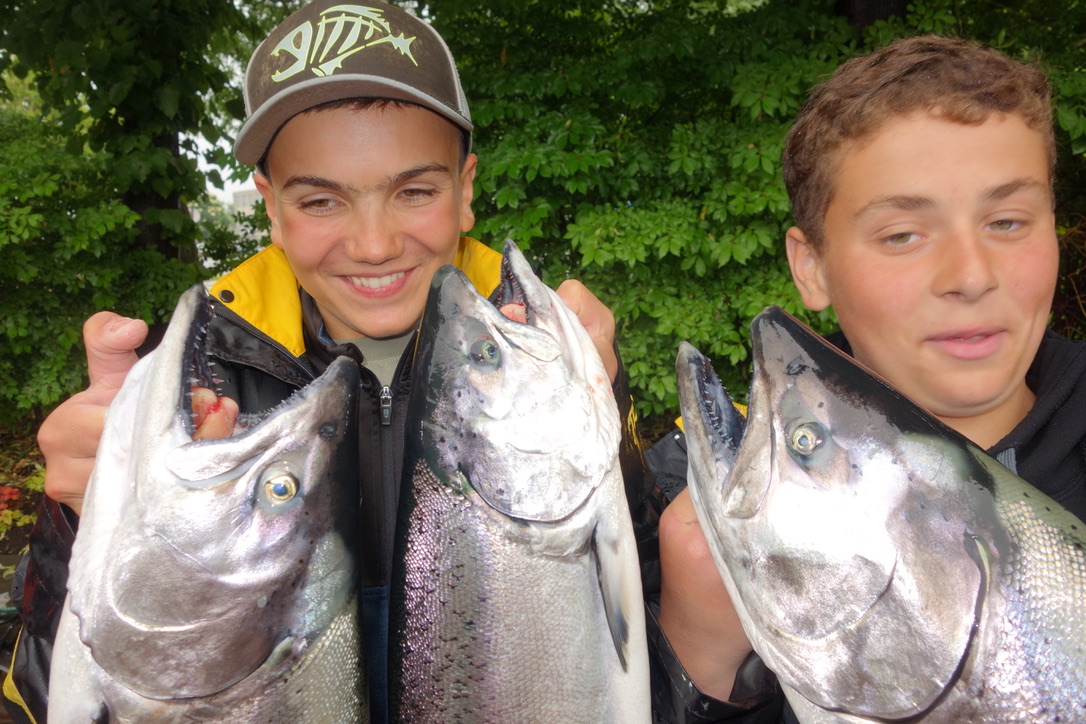
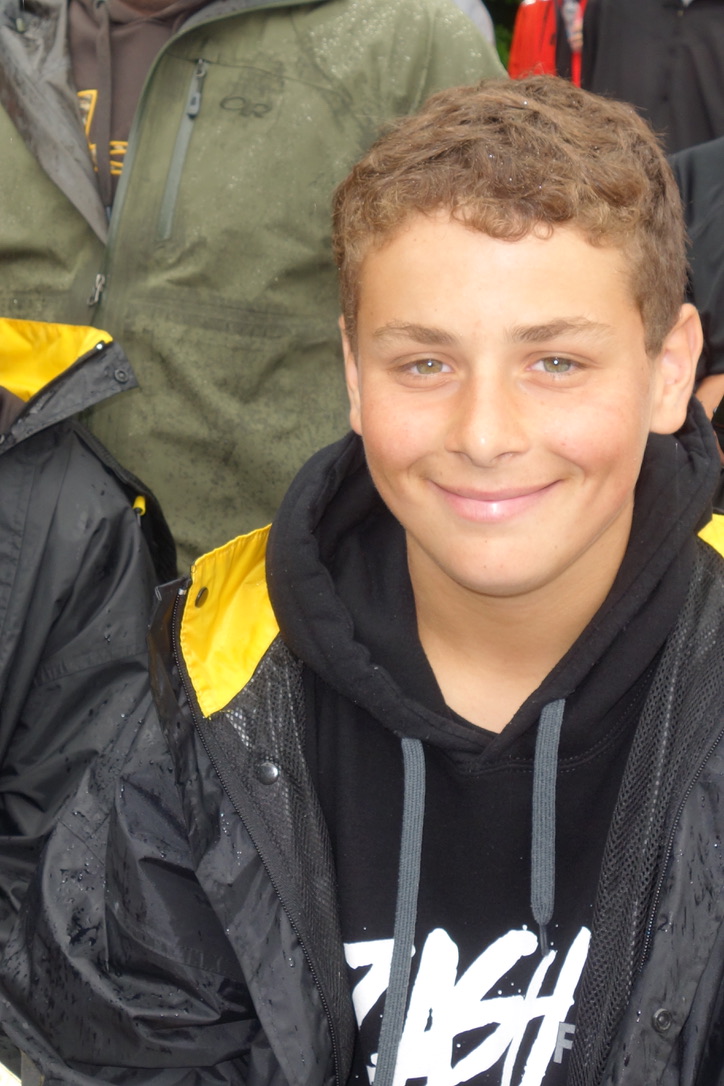
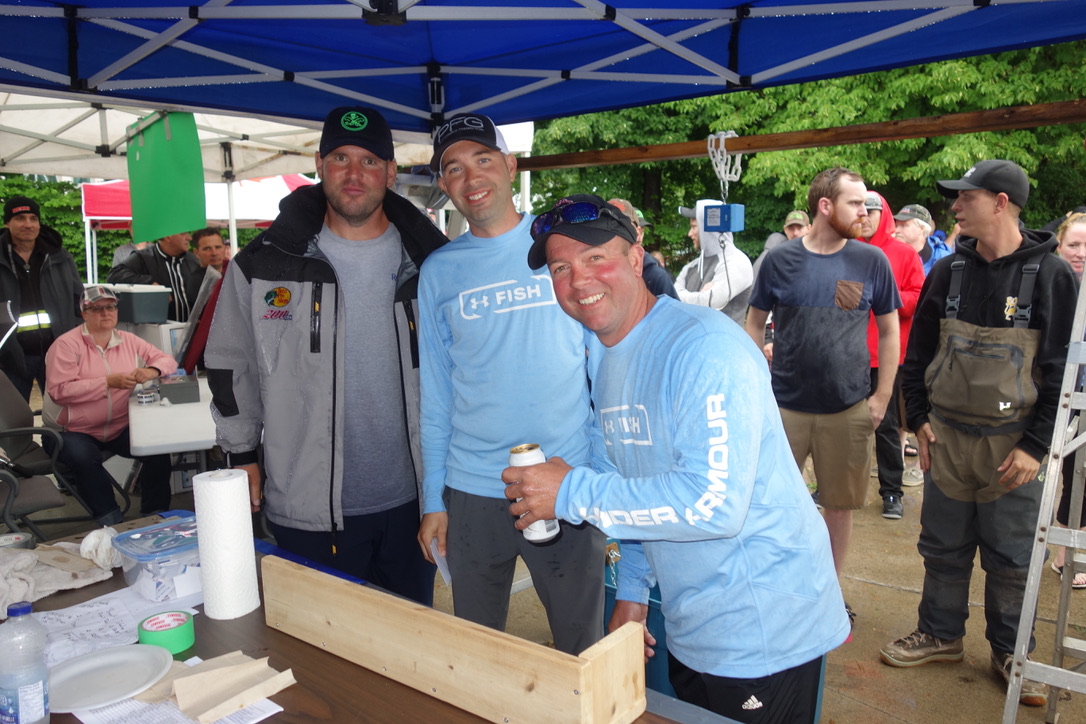
These guys got the third prize of $750 cash.
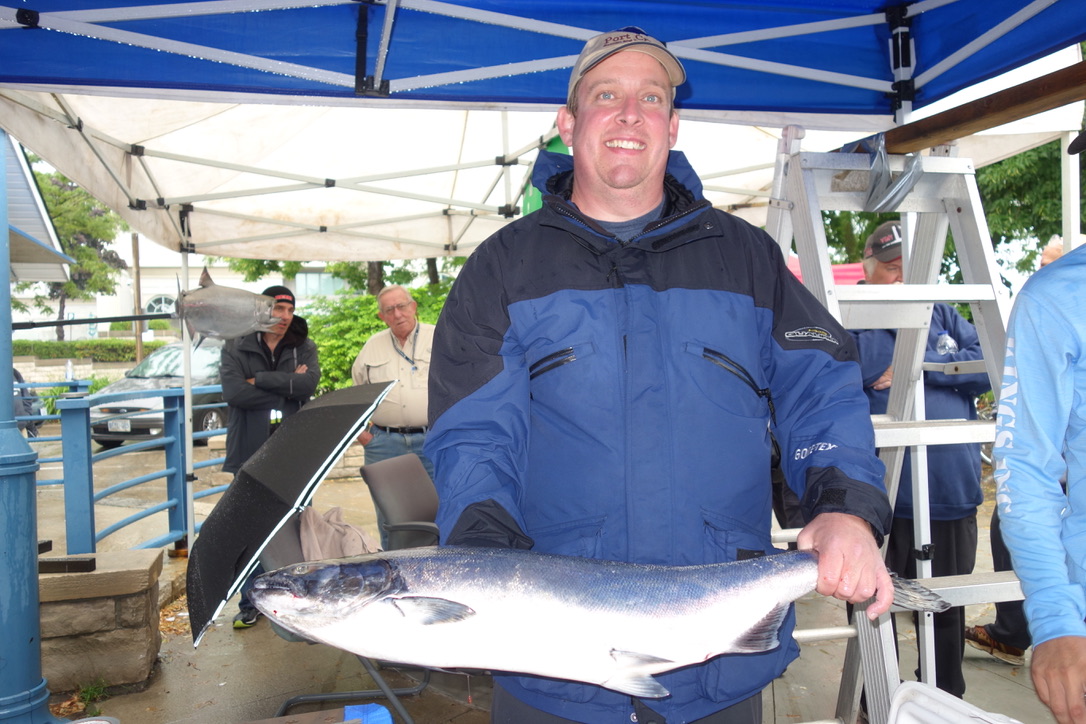
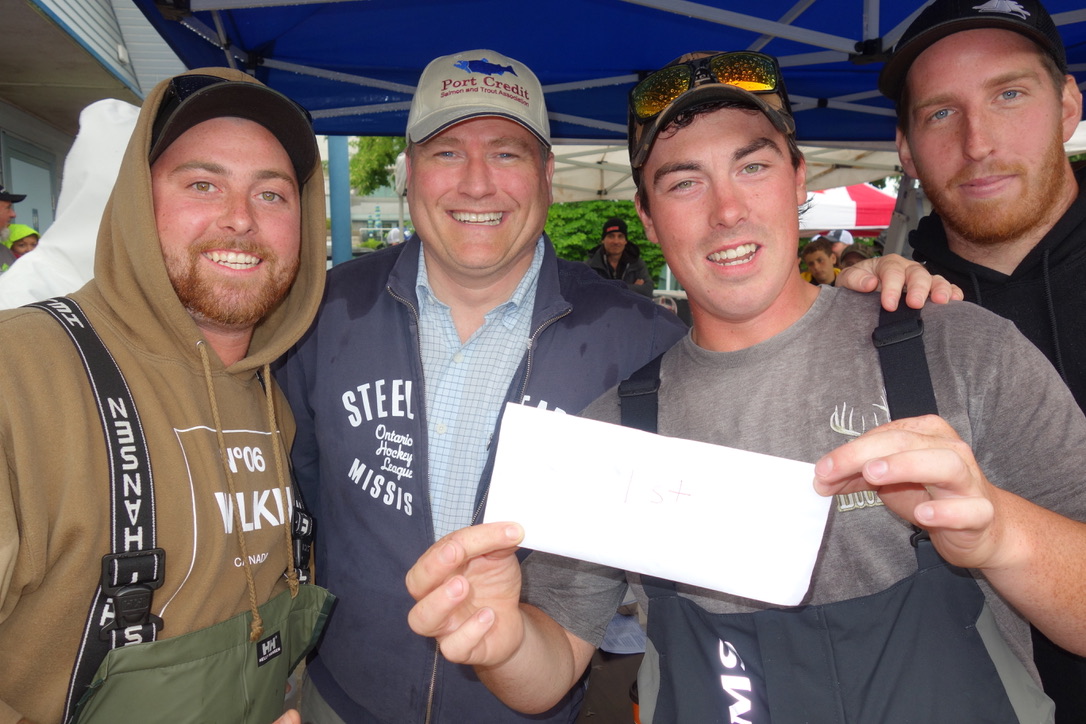
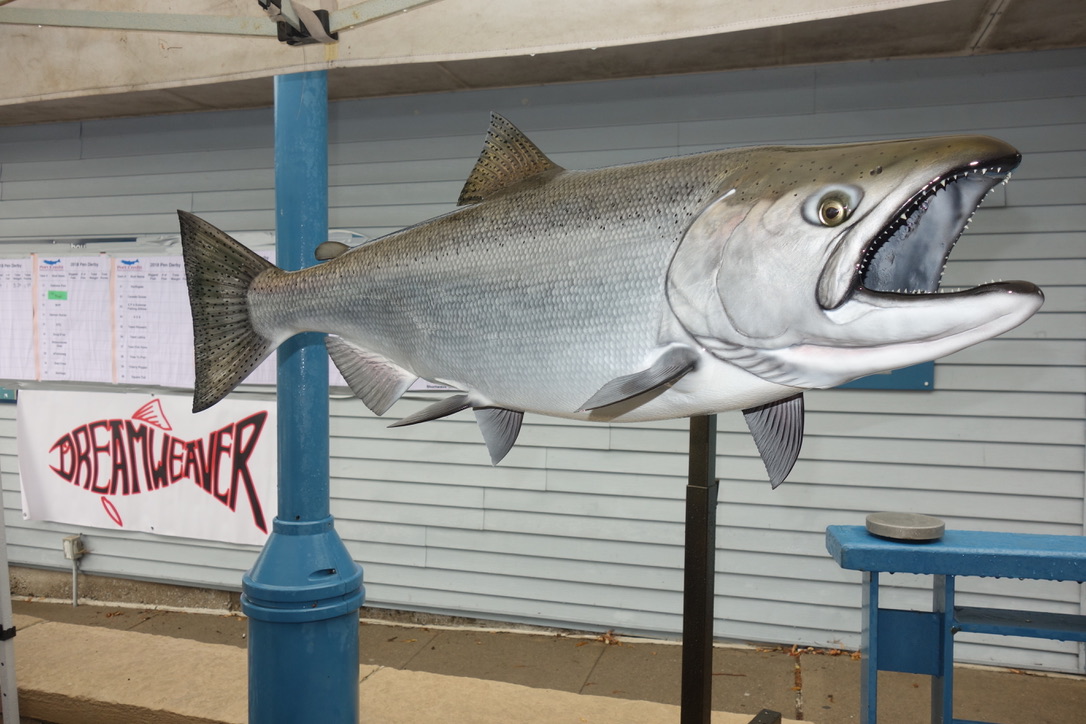

In spite of the pouring rain, Bib Cutmore, Marjorie Skeoch and dog Woody enjoyed the merriment of the competition. Woody
showed no interest in eating a salmon. “Too big…too many teeth…,” he growled.
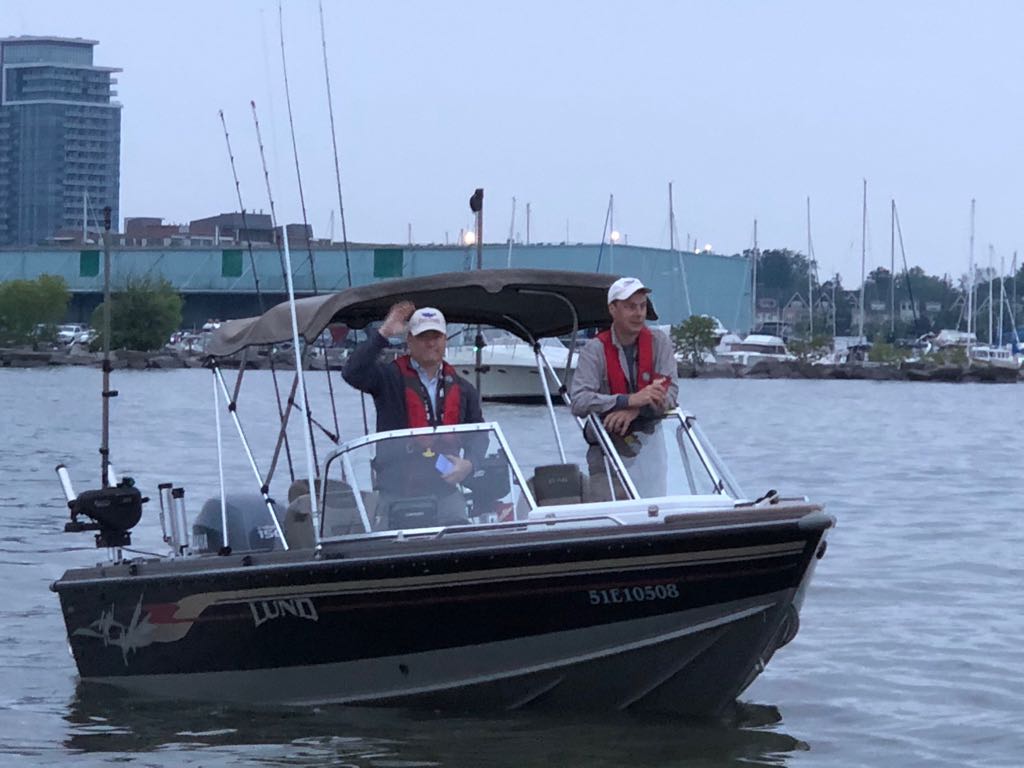
Someone, likely Brian Lambie pictured above, fired a shotgun at 6 a.m. on June 24th to start the Derby. A flotilla of motorized fish
boats festooned with long fish rods raced out into lake Ontario for the six hour Fish Derby. Two hundred feet beneath these boats those big coho and chinook salmon
slid silently in the dark looking for unwary alewives or any other edible thing that moved…some were no doubt surprised
to find the moving lure had a nest of lethal fish hooks.
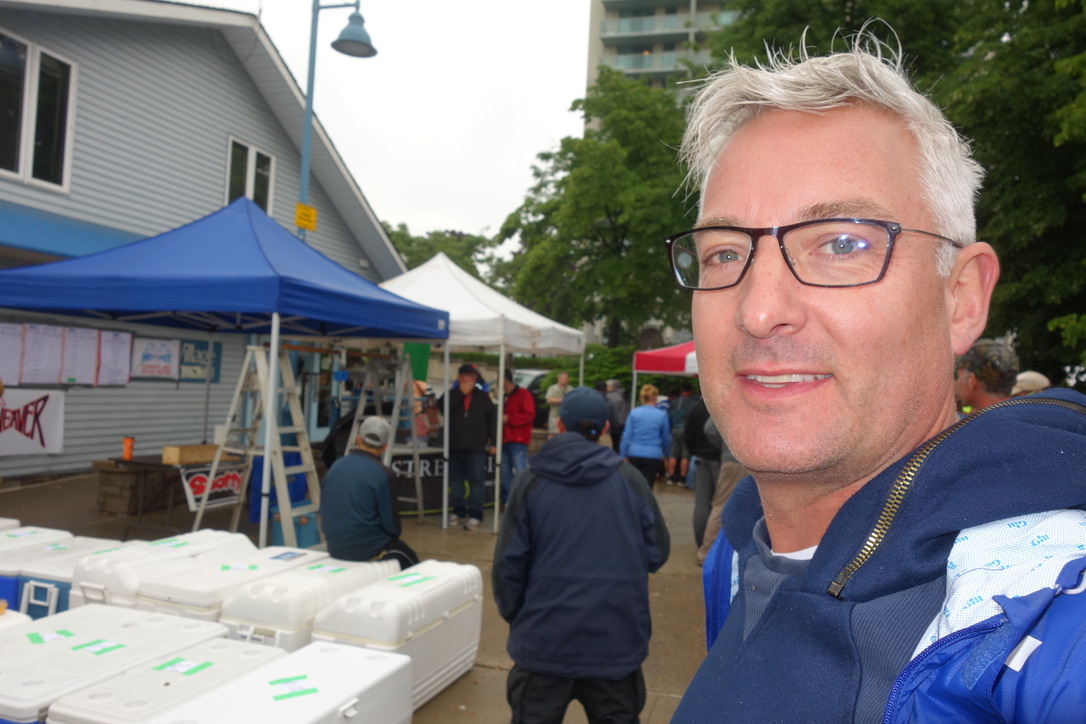
“Where have all these fishermen come from? Several came from Georgian Bay but the person who came the farthest was Kevin Skeoch
who flew to Port Credit from South Korea just to join his brother. The Skeoch brothers failed to catch a big fish but that did not matter.
“It’s the chase that really matters.”
2013 article Toronto Star
